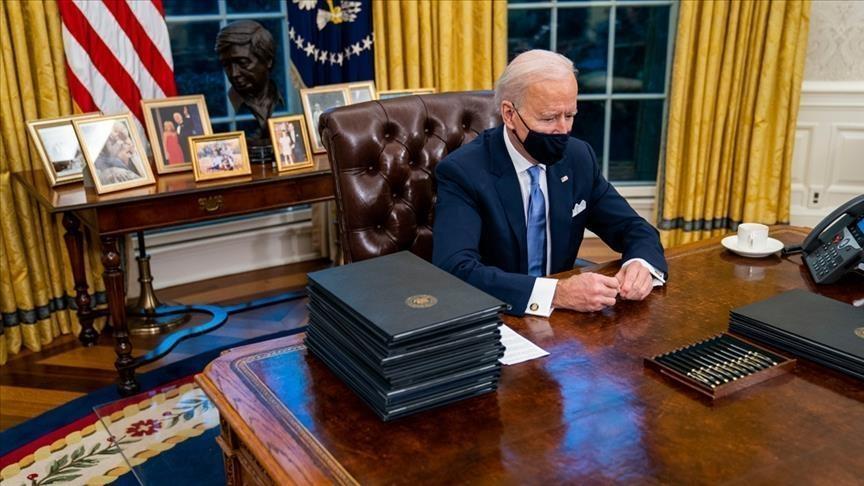US President Joe Biden signed an executive order Wednesday intended to strengthen the nation’s supply chains of key goods and materials after biting shortages hobbled public health efforts and manufacturing.
Biden specifically pointed to shortages of personal protective equipment in the early days of the US coronavirus outbreak that included a dearth of protective masks, gloves and gowns that stretched into key medical facilities, forcing health care workers to ration and reuse supplies while oftentimes using makeshift equipment, further exposing themselves to the virus.
'That should have never happened, and it will never happen again,' he said at the White House.
'We shouldn't have to rely on a foreign country, especially one that doesn't share our interests or values, in order to protect and provide for our people during a national emergency,' the president added in remarks that appeared squarely aimed at China, which produces a high volume of medical items used globally.
Biden's order will trigger a 100-day review to identify vulnerabilities in four critical product groups, including semiconductors, advanced large capacity batteries, pharmaceuticals and active pharmaceutical ingredients, and critical minerals and strategic materials such as rare earth minerals.
It will also initiate a longer-term review of the industry bases of six sectors of the American economy to work on fortifying the American supply chain. Those recommendations will begin to be implemented 'right away,' Biden said.
'We're not going to wait for a review to be completed before we start closing the existing gaps,' he said.
Deputy Director of the National Economic Council Sameera Fazili earlier told reporters at the White House that the order is going to move the 'whole government' toward being able to more rapidly address supply chain shortages in the future while stressing that such an effort will also require action beyond the administration.
'This is going to be broad engagement, broad conversations, that will include business, labor, local communities, academia,' she said.
By Michael Hernandez
Anadolu Agency
energy@aa.com.tr


